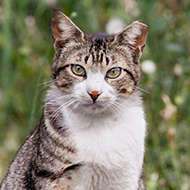
iCatCare launches free virtual library of resources and advice.
International Cat Care (iCatCare) is launching a new initiative to help people working with unowned cats, kickstarting with a free, certified course on the 5 December.
Currently, there are an estimated 300 million unwanted cats worldwide. This number accounts for more than half the predicted global population of domestic cats and is rising year on year.
In a bid to tackle this problem, iCatCare has launched a virtual library of resources, bringing together latest research and expert knowledge. Entitled Cat-Friendly Solutions for Unowned Cats (CFSOC) the information is freely accessible to established professionals, volunteers and organisations, or those who are simply interested in the subject.
To launch the project iCatCare has created a free, certified introductory course called ‘Bringing Cat-Friendly Solutions for Unowned Cats to Life’. Through uplifting and emotional stories of three very different cats, users will be able to learn the principles of the CFSOC and test their knowledge as they progress.
The CFSOC also aims to create a community for those working with unowned cats to share their knowledge, ideas and experiences with like-minded people across the world.
Vicky Halls, cat-friendly homing project manager at iCatCare and CFSOC lead, said: “We strongly believe that collaboration, mutual support and care are needed for us to provide all cats with the best possible life experience.
"Be loud and proud about what you have achieved already but, for the sake of cats, aspire, with the support of others, to evolve from great to even better, as even little changes can make a difference to the species we all care about so much.”
For more information about CFSOC and to take the course when it becomes available on 5 December visit https://bit.ly/2KH4FYP
Image (C) iCatCare



 The Veterinary Medicines Directorate (VMD) is inviting applications from veterinary students to attend a one-week extramural studies (EMS) placement in July 2026.
The Veterinary Medicines Directorate (VMD) is inviting applications from veterinary students to attend a one-week extramural studies (EMS) placement in July 2026.